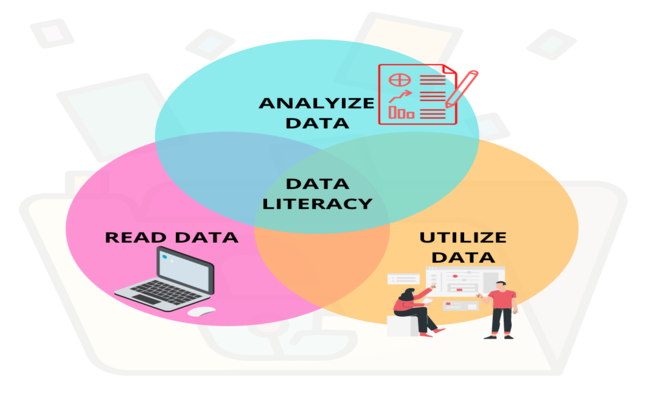
Data literacy is the ability to read, analyze, and work with data. It is the process of examining and evaluating data in order to get insights. While statistical models, algorithms, and other tools may be used to analyze data; one can also do it by simply evaluating data and generating conclusions. Non-data professionals can benefit from data literacy by learning to read and interpret data and applying it to their decision-making. As a result, data literacy is becoming increasingly vital not only for executives but also for managers and employees; who want to add value to their organizations.
Read Data
Reading and writing data refers to the process of converting raw data into a more useful format. Knowing what kind of data to utilise for a certain reason. It contributes to the elimination of analytical errors. Many businesses utilize algorithms and other ways to automatically clean data; but everyone in charge of creating, collecting, or uploading data must additionally check that it meets the organization’s requirements.
Analyze Data
Data analysis is the process of cleaning, processing, and interpreting raw data in order to extract useful; relevant information that can assist businesses in making better decisions. The strategy reduces the risks involved with decision-making by providing relevant insights and facts; which can be shown as charts, photographs, tables, and graphs. This is termed “data visualization.”
Utilize Data
Knowing how to deal with data and solve problems is only one aspect of data utilisation. Yes, they are critical components; but one must also be able to gain insights from that data and be able to act upon it. Data insights may be used to interpret or clarify what has happened, predict what might happen, and suggest a course of action to achieve the desired outcome. These utilization abilities are important for any organization.
Conclusion
Almost every company deals with a massive volume of data. Whether it is a startup, small-medium business or a large organization. However, gathering information is not the same as comprehending it. Due to a lack of data literacy, data analysis and digital transformation activities get. That is why it is critical for every employee of a business, not just top management, to be data literate. When a business is data literate, it can make better decisions based on facts and insights.

